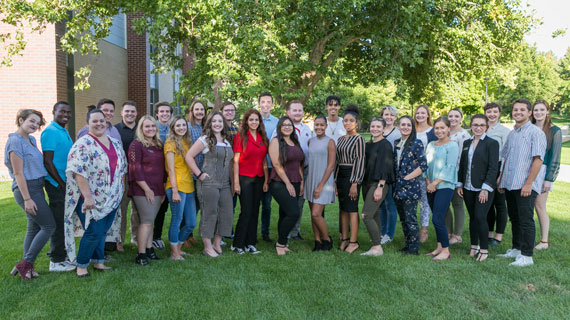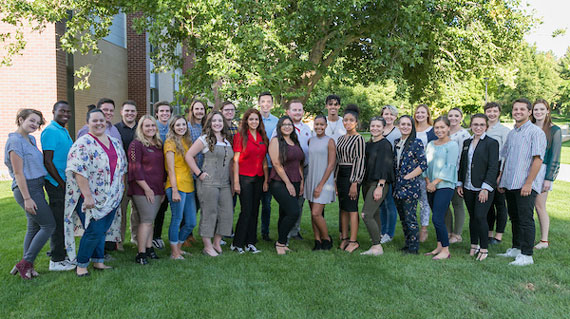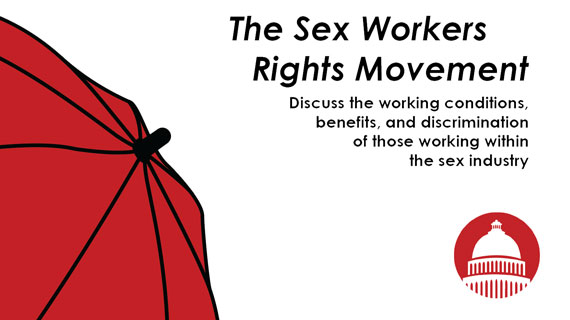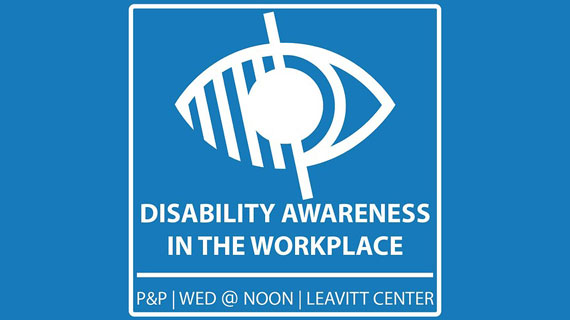Pizza and Politics Focuses on Sex Education
Posted: February 23, 2018 | Author: Miles Anderson | Read Time: 4 minutes
 The Michael O. Leavitt Center for Politics and Public Service hosts Pizza & Politics every Wednesday at noon to discuss a current political topic. Leavitt Center student employees research the topic and moderate the conversation. These discussions expose students to a variety of important issues and encourages them to share their own perspectives while learning all sides of an issue. Free pizza is provided for all who attend.
The Michael O. Leavitt Center for Politics and Public Service hosts Pizza & Politics every Wednesday at noon to discuss a current political topic. Leavitt Center student employees research the topic and moderate the conversation. These discussions expose students to a variety of important issues and encourages them to share their own perspectives while learning all sides of an issue. Free pizza is provided for all who attend.To begin, the moderators presented the three most common types of sex education:
Abstinence-only Education - Focuses on teaching students to abstain from pre- or extramarital sexual activity. Does not provide information or resources on contraceptive devices.
Abstinence-based Education - Primarily focuses on teaching sexual abstinence, but also provides information on contraceptive devices and prevention of STDs / STIs and teen pregnancy.
Comprehensive Education - Highlights the benefits of abstaining from sexual activity, but provides information on contraceptives and resources for obtaining contraceptive devices.
The following questions were posed based on the above-stated information.
Which type of sex education should be taught in U.S. schools?
This question received mixed responses with the majority leaning toward a more comprehensive approach. There seemed to be some animosity toward the abstinence-only policy that currently is in place in the state of Utah coming from those who were the biggest advocates for comprehensive sex education. Others found themselves closer to the middle, indicating that while things like resources for prevention of STD’s/STI’s should certainly be made available and explained in the program, it’s hard to argue with the fact that the most failsafe way to avoid an STD/STI or unwanted pregnancy is abstinence, so it should still be heavily emphasized as the most common sense practice, regardless of religious or moral belief.
Should sex education be standardized across the U.S.?
While the majority indicated that there should be some minimum standard taught in schools, several people also mentioned that they were parents themselves and would really prefer that the school system stay out of it and let the parents be the ones to teach their children about the topic. Others refuted that while that would be wonderful in a perfect system, the fact is that not all parents are going to educate their children so the burden falls on the education system to provide that information.
In what grade should sex education be taught?
Most audience members agreed that a system in which certain aspects of sex education are taught at different stages in a student’s education would be best, with some principles being taught in middle school, some in junior high, and some in high school. The advantage of such a system is that students would not be overwhelmed with information that may not be pertinent to them for several years, by which time they will probably have forgotten.
Should there be sex education courses at the collegiate level?
Many people supported the idea of a college-level sex education course, particularly with regard to things like consent and what constitutes sexual abuse. Some believed that a course should be mandatory while others thought it would be best to have an opt-in type class that does not force anyone to enroll. Some schools have incorporated a seminar on consent as a part of freshman orientation.
Is having online sexual education a better alternative to classroom lessons?
Much like relying on parents to provide sex education, some responses loved the idea of an online program that allowed parents and students to pick and choose which topics related to them and what they wanted to learn about. On the flipside, many doubted that students would really learn anything from the online programs, especially with no means of accountability.
Should LGBTQ+ sex education be taught in public schools?
The first response to this question stated that LGBTQ+ sex education IS sex education and that it should be taught for the protection of the LGBTQ+ community just as it is taught for the straight community. Others generally agreed that regardless of one's sexual orientation, they need to be educated on safe-sex practices. It was also noted by the moderators that the LGBTQ+ community is at a higher risk of many negative outcomes of sexual activity compared to their heterosexual peers.
This article was published more than 3 years ago and might contain outdated information or broken links. As a result, its accuracy cannot be guaranteed.
Tags: Student Blog Leavitt Center




